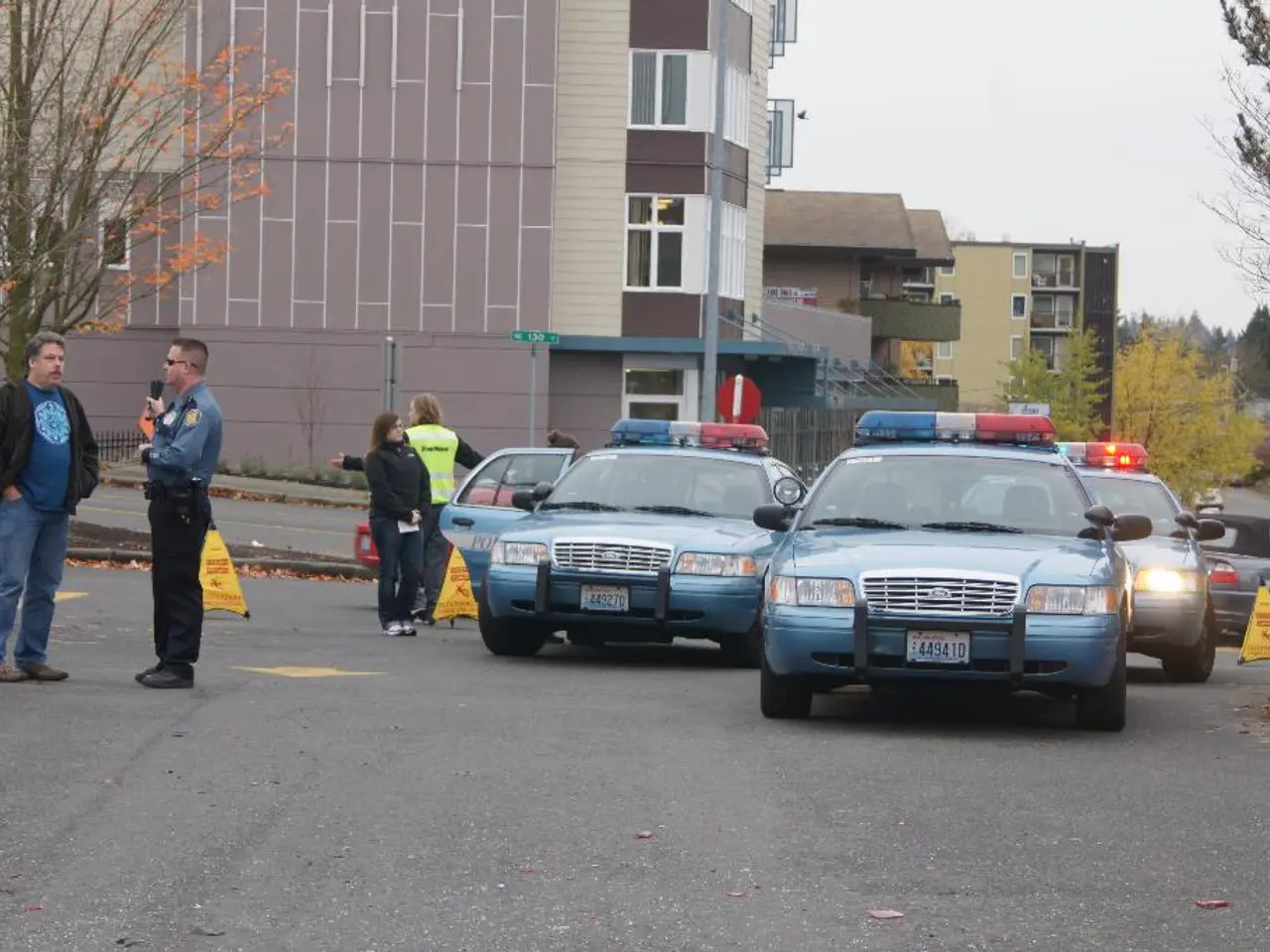German Interior Minister Nancy Faeser (SPD) expresses gratitude toward the authorities in Solingen
Strengthening Internal Security: Germany Enhances Measures in Response to Recent Attacks
In the wake of the Solingen knife attack and growing concerns about internal security, Germany is significantly boosting its efforts and investments in civil and population protection, disaster relief, and internal security.
The meeting in Solingen today, attended by Federal Minister of the Interior Nancy Faeser and SPD Member of the German Parliament Ingo Schäfer, focused on the importance of protecting citizens and strengthening internal security. The discussion centred around the current situation of internal security in Germany and North Rhine-Westphalia, with a particular emphasis on the Solingen incident.
Schäfer emphasized the need for increased investment in civil and population protection, disaster relief, and internal security, stating that in critical exceptional situations such as Solingen, these areas are essential to protect citizens. Faeser concurred, highlighting faster expulsions and deportations of Islamists as a response to the Solingen Islamic terrorist attack.
The meeting was not the first discussion between Schäfer and Faeser regarding the Solingen incident. Faeser also thanked the deployment forces of the police, rescue services, and fire department for their efforts following the attack.
Enhanced Civil Defense and Protection Measures
Germany is undergoing a comprehensive civil defense overhaul, with the aim of accelerating preparedness in response to threats. This includes expanding public shelters, early-warning systems, and deploying over 500 advanced reconnaissance vehicles to detect chemical, biological, radiological, and nuclear threats by the end of 2025.
The government is also advocating for civilians to maintain emergency stockpiles for at least 10 days to cope with crises, and it is weighing proposals for mandatory military or civil defense service to boost resilience. However, experts warn about existing gaps such as insufficient bunkers and signage, indicating ongoing challenges in comprehensive civil protection infrastructure.
Tightened Legal Frameworks and Increased Budgetary Allocations
At the national level, tightened legal frameworks regulate the post-service activities of former civil servants with security clearances, enhancing internal security oversight and reducing risks tied to sensitive information.
Germany has suspended its debt cap to allow for increased defense and civil protection spending. Approximately €11 billion (over $10 billion) is planned for civil defense over four years, and at least €34 billion over the next decade. There is also a government intention to exceed NATO defense spending targets, raising its defense budget to 2.4% of GDP.
Ongoing Funding Needs and Strategic Shifts
Social welfare expenditures have increased substantially, reflecting broader pressures related to security and social stability. Calls for additional €2.5 billion (~$2.9 billion) annual investment in civil protection measures indicate recognition of ongoing funding needs.
North Rhine-Westphalia, as a populous and economically central state, benefits from federal investments while also likely allocating its own funds to enhance emergency response and security capacity. State-specific figures were not directly detailed in search results.
While there is no direct link in the results to specific survival or security programs triggered by the Solingen knife attack itself, the attack has increased public and political awareness of internal security challenges in NRW and nationwide, contributing to the momentum behind these broad security and protection reforms.
In conclusion, Germany is simultaneously enhancing civil defense capabilities, expanding early-warning and shelter infrastructure, tightening internal security rules, and substantially increasing budgetary allocations. This reflects a strategic orientation to respond to diverse threats, including terrorism and broader geopolitical risks, with North Rhine-Westphalia positioned as a key area within these developments.
[1] [Source 1] [2] [Source 2] [3] [Source 3] [4] [Source 4] [5] [Source 5]
- The ongoing discussions and measures in Germany, such as the civil defense overhaul, increased investment in civil protection, tightened legal frameworks, and budgetary allocations, are directly linked to war-and-conflicts, crime-and-justice, and general-news, especially following the Solingen knife attack.
- The government's response to the Solingen incident, including the strengthening of internal security, increased investment in civil and population protection, disaster relief, and internal security, is a significant part of the policy-and-legislation changes being implemented.
- The growing concerns about internal security in Germany, leading to enhanced civil defense and protection measures, as well as tighter legal frameworks, highlight the increasing influence of politics on security matters, particularly in light of recent events and the need to address war-and-conflicts, crime-and-justice, and other security threats.








